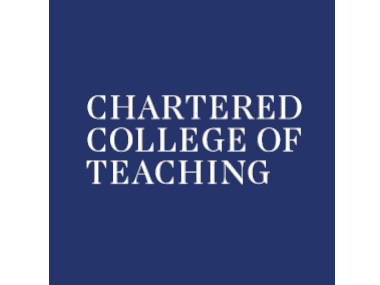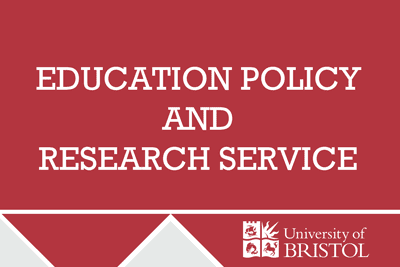
The Chartered College of Teaching is developing a series of webinars and bitesize CPD resources for teachers and school leaders on supporting pupil wellbeing and mental health in practice, aligned with key themes in the relationships, sex and health education (RSHE) curriculum. The articles and resources shared as part of this online learning include information […]

THIS CONFERENCE IS BOTH ONLINE AND FACE-TO-FACE OPTION 1: Buy a ticket to the face-to-face conference in London on Sat 17th September. This includes access to the online conference. OPTION 2: Buy a ticket for online conference only. These are donation-based, so you can pay what you can afford. See here for the 32-page programme for the […]



Teachers have a role to play in supporting children and adolescents to understand anxiety as part of the new RSHE curriculum, as well as needing to feel confident that they can support pupils with anxiety and recognise the impact it may have on the children they work with. This reading list collates articles and resources […]

Katie Cork, Head of Sixth Form, St Mary’s School, Gerrards Cross Study habits and academic achievement In post-16 education, a student studying for three A-levels has 10 or more hours of undirected time a week within their timetable; this is around half the time recommended for students to spend on independent study (Oakes and Griffin, […]

Jonathon Parker, Lecturer, Gower College Swansea, UK Introduction Modern-day students have grown up in a world immersed in social media and digital content consumption, but do these students have the digital competencies to acquire and synthesise information for educational gain or in a career-based context? By using digital collaboration tools to simulate a workplace scenario, […]

Stephen Lee and Paul Chillingworth, Mathematics in Education and Industry, UK This case study gives an insight into an online learning environment created to enable post-16 students to study AS/A-level further mathematics through external tuition provided by an education charity. A ‘student experience of tuition’ baseline survey and comparable ‘end of course’ survey were considered […]

Latoya van der Meer, Kings Education, UK Dr Liam Guilfoyle, University of Oxford, UK Introduction Developing local school policies and implementing them is never easy. School leaders who aim to do this quickly may provide teachers with policy texts in the hope that this leads to the actions that they envisage. However, policies are much […]

Chartered College of Teaching are delighted to offer members an opportunity to participate in a live discussion with Ofqual and to pre-submit any questions. Ofqual is the regulator of qualifications, examinations and assessments in England. Please join us together with Julie Swan (Executive Director for General Qualifications) and Richard Garrett (Director of Policy and Strategic […]

This case study is part of a series of short online learning courses on decolonising and diversifying the curriculum. Chartered College of Teaching members can access this learning for free. This is a case study from Module 4, ‘Approaches to decolonising and diversifying the curriculum’, of a series of 6 online courses. The module includes a […]

Lewis A Baker, Faculty of Engineering and Physical Science, University of Surrey, UK Distributed practice, a learning strategy that can inform curriculum design, deliberately spaces out opportunities for memory storage and retrieval of taught information to develop deep, robust and long-term learning for students (Dunlosky et al., 2013). Massed practice (better known to students as […]

‘Today I’m gonna talk a bit about the jump from school to university. I call it a jump because that’s exactly how it feels. Like a leap. With your eyes shut. Off a cliff. At night. Into shark infested waters. At least that’s how it felt for me the first time.’ (Second-year student on their […]

At present, the learning gap is something that is of great focus in schools. While cognitive strategies and retrieval practice are embedded parts of teaching, how much are these strategies explicitly taught to students from a meta-cognitive angle? In focusing on schema theory as a particular strand of cognitive science, we can form specific strategies […]

Context As a high school in a grammar school area serving a diverse community with high levels of economic and social disadvantage, we recognise that some students, particularly those who begin secondary school with low levels of literacy, face barriers in approaching a humanities curriculum. This can take time, effort and imagination to overcome. We […]

In this video, Gemma Goldenberg provides a guide to navigating a research paper.

In this video, Gemma Goldenberg and Sam Sims discuss their tips for honing your search to locate the most useful research.

What and how should we teach young people? There are lots of claims about what is and isn’t effective, many of which you will have come across. For example, there are claims that extending the school day improves pupils’ learning, increases attendance, and adds to teacher stress. How can you know which of these claims […]

Researchers from UCL Institute of Education, Sheffield Hallam University and Durham University have developed a set of self-assessment tools to help teachers and schools to evaluate their levels of research engagement. These are designed as practical tools to encourage teachers and school leaders to consider their engagement with research evidence, and the areas you may […]

Researchers from UCL Institute of Education, Sheffield Hallam University and Durham University have developed a set of self-assessment tools to help teachers and schools to evaluate their levels of research engagement. These are designed as practical tools to encourage teachers and school leaders to consider their engagement with research evidence, and the areas you may […]



















